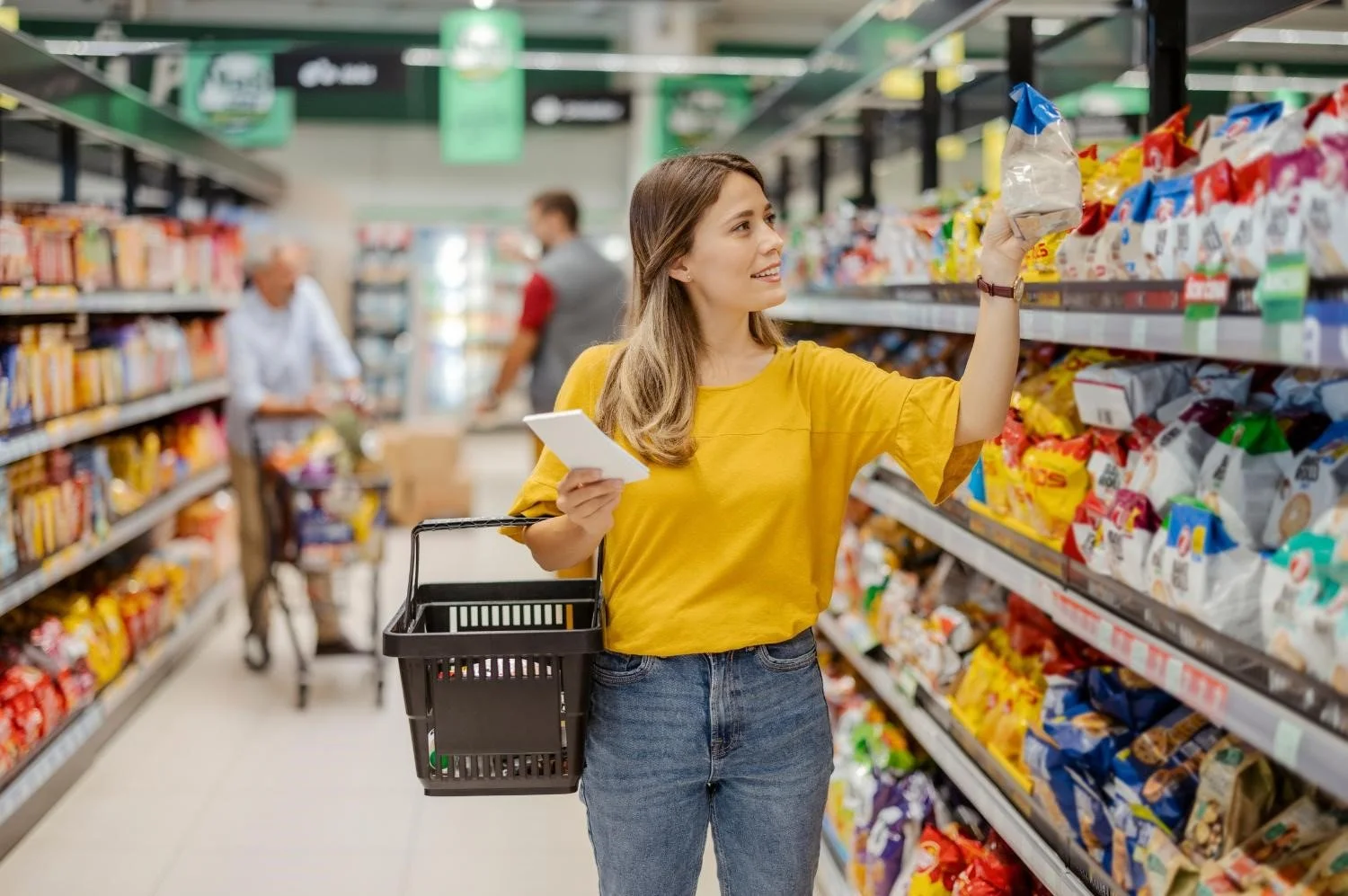Private Label Trends in Grocery
By Mike McGrath - eSourcing Expert and CEO of Kwayga
Over the past 18 months, the cost-of-living crisis has significantly impacted brands, retailers, and shoppers alike. As prices continue to rise, supermarket buyers are increasingly turning to private-label products (aka "store brands") to manage their product mix and meet consumer demands. According to IGD (Institute of Grocery Distribution) this trend is set to continue, with private labels gaining popularity due to their affordability and quality. With inflation expected to decline into 2024, the focus is shifting towards how retailers can innovate their private-label NPD to enhance differentiation while leveraging collaborations with brands to reach an even wider audience.
“As prices continue to rise, supermarket buyers are increasingly turning to private-label products (aka “store brands”) to manage their product mix and meet consumer demands.”
Private Label: A Strategic Choice for Supermarket Buyers
Private labels have acquired nearly a third of the overall value share in Europe, marking a significant shift in consumer preferences. In 2023, sales of private-label products in Europe reached an all-time high of €340 billion, accounting for 38.5% of the total grocery market value. This represents a 13% increase in private label turnover, outpacing the 6% growth of manufacturers’ brands. For supermarket buyers, this data underscores the strategic importance of incorporating a robust private label offering to cater to cost-conscious shoppers.
Innovation and Differentiation in Private Labels
Despite economic challenges, innovation remains a key driver for private labels. Retailers like Aldi have introduced pioneering products, such as the sustainable paper wine bottle, showcasing their commitment to innovation. This innovative approach not only attracts cost-conscious shoppers but also differentiates the retailer from competitors, making it a vital consideration for supermarket buyers aiming to enhance their product assortment.
Moreover, private labels are excelling in categories traditionally dominated by brands. For instance, Sainsbury's Stamford Street and Poundland & Dealz Manor Grove are examples of successful private label launches that cater to budget-conscious consumers, illustrating the potential for private labels to capture significant market share.
Despite a few exceptions, retailers have generally played it safe in their private-label product development. However, with the recent drop in inflation, there is a growing opportunity for retailers to introduce novel and exciting products to differentiate themselves further.
The Role of National Brands in a Balanced Product Mix
While private labels continue to grow, national brands remain crucial for retailers. Brands are seen as reliable options when shoppers are uncertain about alternatives. They offer trust, familiarity, and reliability, which are invaluable during times of economic uncertainty. Supermarket buyers can leverage these attributes by incorporating a balanced mix of private labels and national brands in their stores.
Participating in blended campaigns and promoting special occasions can help brands remain front of mind for shoppers. This strategy not only drives sales but also enhances shopper loyalty and engagement. As an example, Tesco launched digital adverts for its private-label summer BBQ range, 'Fire Pit,' featuring a selection of Kraft Heinz sauces. This campaign effectively built shopper awareness of Tesco's private-label products alongside trusted brands.
Health, Sustainability, and Shopper Loyalty
Health and sustainability are increasingly important to shoppers, and supermarket buyers should prioritise these factors when selecting products. Government legislation on HFSS (high fat, sugar, and salt) products is forcing brands to reformulate their offerings. Collaborations like the one between Waitrose & Partners and Diageo on low-alcohol and alcohol-free drinks highlight the growing importance of health and wellbeing in the retail sector.
Shoppers also love private-label frozen food, with an additional £60.6 million worth sold, reflecting a 14.1% increase, the second-fastest growth in this category according to Insights by Kantar 52 w/e 14 April 2024. This indicates a strong opportunity for supermarket buyers to expand their private-label offerings in frozen foods to meet consumer demand.
“When inflation drops below 3% and the cost of living comes down, that’s a pivot point for when consumers start to feel braver, try new things and expand their consumption.”
The Future of Grocery Shopping for Supermarket Buyers
As inflation slows and consumer confidence improves, the grocery sector is poised for further evolution. There is a growing opportunity for retailers to introduce novel and exciting products to differentiate themselves further.
“When inflation drops below 3% and the cost of living comes down, that’s a pivot point for when consumers start to feel braver, try new things and expand their consumption,” said Toby Lancaster, group commercial director at Greencore.
Supermarket buyers will increasingly focus on product quality and innovation to attract shoppers. A balanced mix of private labels and national brands will be essential for success, catering to the diverse needs and preferences of consumers.
Conclusion
In conclusion, the evolving economic landscape presents both challenges and opportunities for supermarket buyers. With inflation easing and consumer confidence rising, now is the time to innovate and expand private label offerings while maintaining a balanced mix with trusted national brands. By focusing on quality, health, and sustainability, supermarket buyers can meet the diverse needs of shoppers and drive growth in this competitive market. As the sector continues to evolve, staying ahead with innovative and differentiated products will be key to success.
If you want to discover and connect with the best suppliers of private-label food and drink products, Kwayga’s AI-driven sourcing engine can help. The largest retailers in Europe already use Kwayga as part of their sourcing strategy to speed up processes and lower costs. Don't be left behind. Book a demo today!

